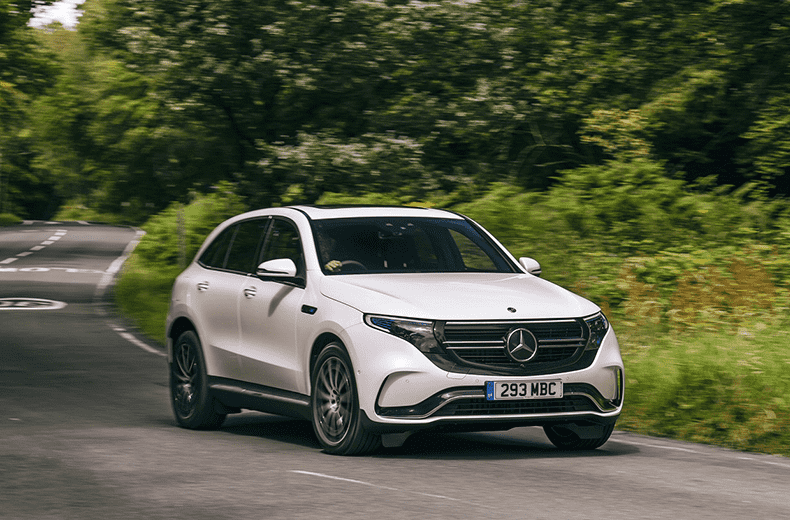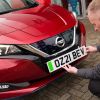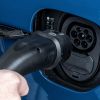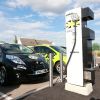Introduction to leasing an electric car’
More than 90 percent of new cars are bought on finance, according to the latest Finance & Leasing Association statistics.
Why such a big share? The benefits of leasing include fixed monthly repayments, no concerns about depreciation and the flexibility to switch to a new car at the end of the contract.
Within this market, electric car leasing is growing in popularity, with many buyers using it as a way to see if they can live with an EV on a daily basis.
This is an important consideration as we head towards the 2035 ban on the sale of new petrol and diesel cars.
For reasons we’ll outline here, leasing an electric car can be much more appealing than other finance options or buying outright. Electric cars can be expensive to buy, but most vehicles should be well within reach on EV finance.
Take the MG ZS Hatchback as an example.
| Car | Leasing | Buying |
|---|---|---|
| MG MOTOR UK ZS HATCHBACK (petrol) | £248.28 per month | £18,000 |
| MG MOTOR UK ZS ELECTRIC HATCHBACK (electric) | £251.99 per month | From £26,000 with plug-in grant |
The electric MG ZS Electric looks expensive on paper, with a starting price of around £26,000, (that’s £10,000 more than the entry-level petrol equivalent MG MOTOR UK ZS HATCHBACK 1.0T GDi Excite 5dr DCT with a 1-litre petrol engine) but leasing thankfully closes the gap.
This is based on a three-year contract, an initial rental of six months and 10,000 miles a year.
Read on to discover why leasing rather than buying an electric car might be a better fit for you.
7 reasons to lease an electric car
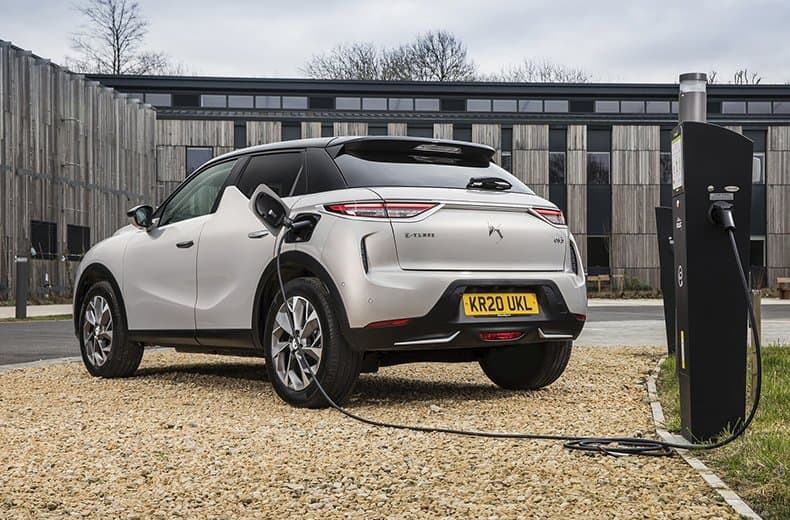
1. Leasing is usually cheaper than buying
Electric vehicles can be more expensive to buy than petrol or diesel cars. However, it's important to note that, if you lease a new EV, you do not need to pay the full value of the vehicle upfront. Instead, you make a smaller, initial payment and then pay a fixed monthly fee until the leasing agreement ends.
You may also make big savings on fuel, compared to a petrol or diesel car, with an EV usually being cheaper to run than their combustion engine rivals.
2. No need to worry about the value depreciating
EV technology is rapidly evolving, with battery capacity and range increasing across new models. It's a bit like having the latest mobile phone, whereby the next generation is always just around the corner.
That's why the calculated depreciation on EVs can be so much higher than they might be on a petrol or diesel vehicle, and why you might want to upgrade your EV when new models with better battery range become available.
If you buy your EV outright, there is a high risk of the value reducing within a year or two of it's life. That’s why leasing offers a more cost-effective way of driving a brand new EV, as the depreciation risk is with the leasing provider and not you.
With shorter term leasing contracts, you can upgrade your EV every two or three years, meaning you get all the benefits of driving the latest models, without taking on the risk of vehicle depreciation.
3. More choice of models
There’s also a greater choice of EVs, including small cars designed for inner-city commuting, SUVs that are perfect for family life and sports cars with the performance to rival a supercar.
Even more EVs will hit the market over the next couple of years, so a short-term lease gives you the flexibility to upgrade, rather than committing to what could become an outdated model.
4. Constant improvements being made
Then there’s the rate at which technology is improving, not just in terms of battery capacity, but in the car’s smartphone connectivity, safety features and entertainment.
Although you can already charge an EV with a typical 60kWh battery in around eight hours using a 7kWh home charger, faster charging times, longer range estimates and enhanced user experiences are all likely within the next few years.
5. Less concern around battery condition
Battery degradation is a common concern. A 2020 report from Which? found that, on average, you can expect an EV with a range of 188 miles to drop to 173 miles after six years.
Say you travel 188 miles a week, that’s a loss of 780 miles a year. Another thing you don’t have to worry about when leasing an EV.
6. Service and maintenance can be included in your lease
With leasing, some providers give you the option to add on a service and maintenance package, which is spread across the length of the contract.
Maintenance packages can include all scheduled maintenance such as MOT, servicing and tyre replacement. Breakdown and roadside assistance can also be included.
The good news is, with fewer moving parts and no oil to top up, maintaining an EV is much simpler than a traditional petrol or diesel car, and you should make big savings.
You should also find that breakdown cover is included as part of the manufacturer’s warranty.
7. Electric car technology is advancing quickly
The rate of development in the electric car industry is extraordinarily high. Consider the likely range of a typical electric car, which has increased from around 100 miles a decade ago to 200-250 miles in 2021, with 300 miles likely from some models.
With EV technology advancing so quickly, if you have the choice to upgrade your car every three or four years through leasing, you’ll be getting the latest technology and won't need to worry about your vehicle becoming superseded by newer vehicles with better battery technology that offers improved efficiency and range.
Things to consider before leasing an electric car
Mileage penalties
As with a leasing agreement with any petrol or diesel car, at the beginning of your contract, you agree to the set amount of miles you travel per year which will reflect in your monthly rental payment, however there are penalties at the end of your contract for going over the agreed mileage limit.
You’ll be charged a price in pence for every mile over the mileage cap, so make sure you work this out as accurately as you can, or set a higher limit from the outset to ensure you are covered against extra charges.
Damage excess charges
Although you don’t own the car, you are expected to look after the lease car as if you do.
If you don’t add on a maintenance package, it will be your responsibility to ensure the vehicle is fully maintained on an annual basis, as well as repair any damage caused during the life of the contract that is considered beyond reasonable wear and tear.
Any damage or failure to service the vehicle will result in end of contract charges, which can vary in cost depending on the type of damage. You also get this on petrol and diesel cars, not just those are electric.
Battery rental
In rare cases, the leasing fee doesn’t include the battery rental. You’ll find this on older versions of the Renault Zoe, so check with the finance company before signing the lease agreement.
How much does it cost to lease an electric car?
The difference between leasing a petrol or electric version of the MG MOTOR UK ZS HATCHBACK can be very little, but what about a more expensive EV?
Using the same search criteria (personal lease, three years, initial rental six months, 10,000 miles per annum), for a larger SUV such as the Kia e-Niro could cost between £325 and £450 a month. A standard Kia Niro is likely to cost between £275 and £350 a month.
Yes, the EV is more expensive, but you’ll benefit from lower running costs, significant tax advantages and not to mention the environmental impact of running a zero emissions vehicle.
For company car drivers, the benefit-in-kind (BIK) tax rate for electric vehicles is just 1%. For some context, with CO2 emissions of 110g/km, even the basic Kia Picanto attracts a BIK rate of 27%. That means a high-end electric car will cost less in company car tax than a tiny city petrol car.
Other cost advantages include exemption from the London Congestion Charge and Ultra Low Emission Zone (ULEZ) fee, along with free parking (and charging) in selected London boroughs and other UK towns and cities.
Supermarkets are also supporting the take-up on electric cars, with free EV charging pays popping up across their larger superstores, so you charge whilst you shop!
Electric car financing
Spreading the large cost of a new car makes perfect sense, but you have to decide which finance deal to choose.
We’re focusing on three options: personal contract purchase (PCP), hire purchase (HP) and leasing. You’ll often see leasing referred to as personal contract hire (PCH), which is the consumer version of a business lease.
PCP - personal contract purchase
The basic premise of a PCP deal is that you only pay for the car’s predicted depreciation over the length of the contract.
That’s the difference between the list price and the car’s expected value at the end of the agreement, typically up to four years.
Most new cars lose around 40 percent of their value over the first three years. Say a new car costs £20,000 and is expected to be worth £12,000 after 36 months.
The £8,000 difference is due in the form of a small deposit and fixed monthly repayments. At the end of the contract, you can pay the remaining £12,000 or simply hand the car back.
HP - hire purchase
Before the boom in popularity of PCP deals, hire purchase (HP) was the most common form of new car finance.
An HP agreement simply involves spreading the cost of a new car over a fixed period, typically 12 months to five years. At the end of the contract, the car is yours, with nothing more to pay.
However, if you are considering an EV then HP might not be the best option for you. The rate of development in the field of battery technology is such that you could find that your EV is slightly outdated and outmoded by the end of the contract.
This will make it more difficult to upgrade to a new electric car, as your trade-in value will be reduced.
Leasing
Leasing is currently the most popular option for financing an electric car - and for good reason.
It’s likely to be the most affordable form of EV finance, not least because you’re essentially renting the car from the leasing company.
At the time of writing, it was possible to lease an electric car for less than £200 a month, with even the Nissan Leaf and Renault Zoe, two of the UK’s most popular EVs, available for around this price.
Get a car service at home
RAC Mobile Mechanics can come to you, saving you the hassle of going to a garage.


Other types of electric car finance
If you’ve decided that leasing isn’t for you, there are a number of other electric car finance options to choose from.
A short PCP deal is likely to be the most affordable alternative to leasing, but you could find that you’re limited to the smallest EVs on the market. Like a leasing contract, you’re restricted to a mileage cap and you must service and maintain the car to strict standards.
A personal loan or HP agreement gives you greater flexibility, but you’re exposed to the spectre of depreciation and negative equity.
Conclusion
The benefits of leasing are plentiful: lower monthly payments, greater flexibility and a clear handle on your monthly outgoings.
That said, leasing isn’t for everyone, so be sure to check out RAC Cars to look at the best options for you.
It’s important to do your homework before signing a leasing agreement and be sure to shop around for a great deal. There’s never been a better time to lease a new electric car!

RAC sale – up to 33% off*
• Roadside cover from £5.29 a month†
• We get to most breakdowns in 60 mins or less
• Our patrols fix 4/5 breakdowns on the spot


